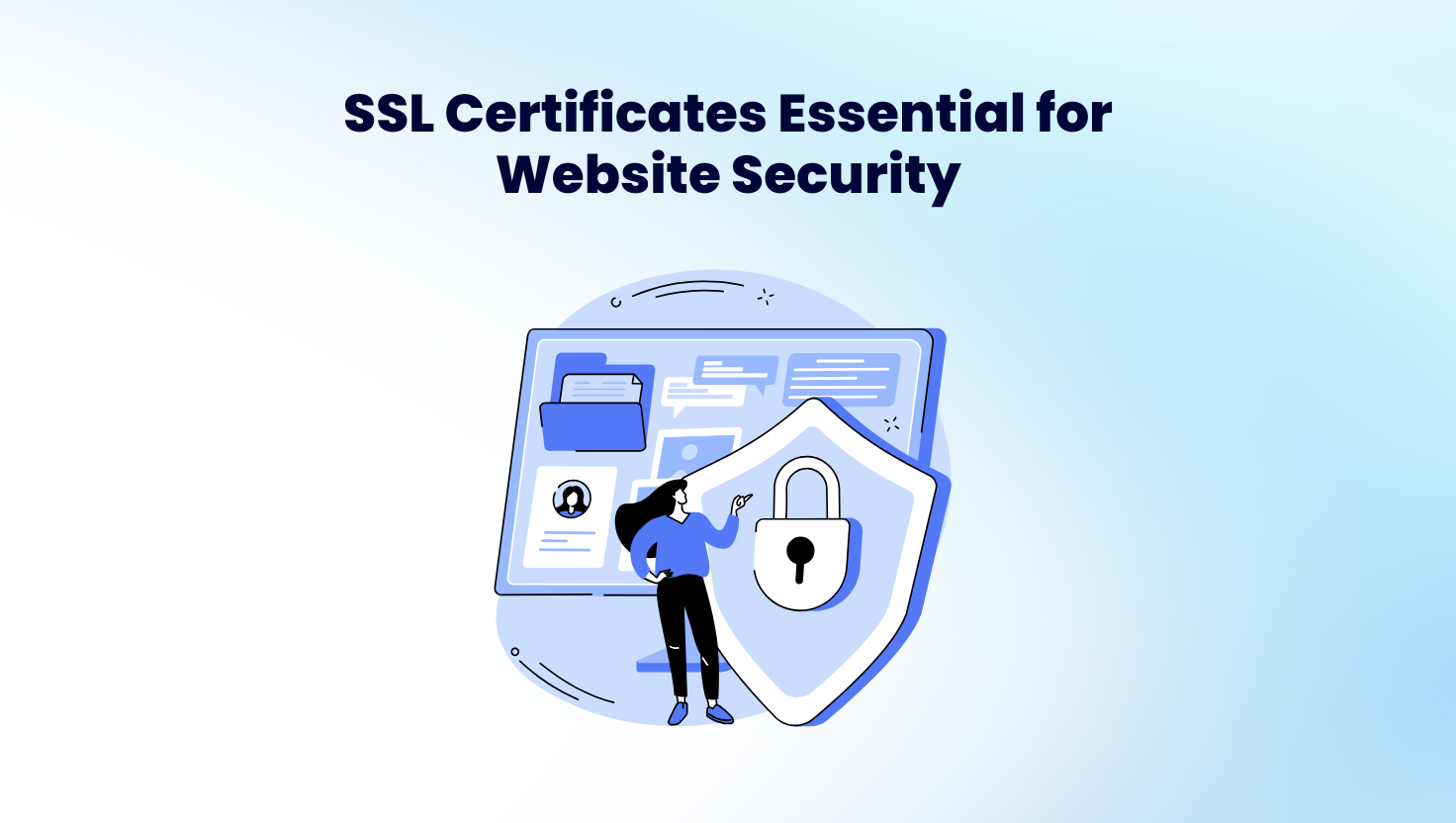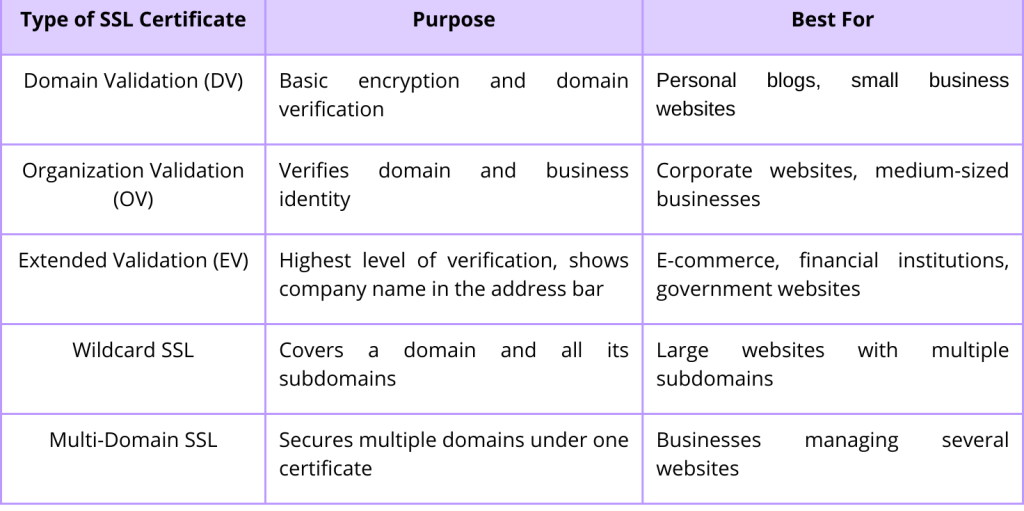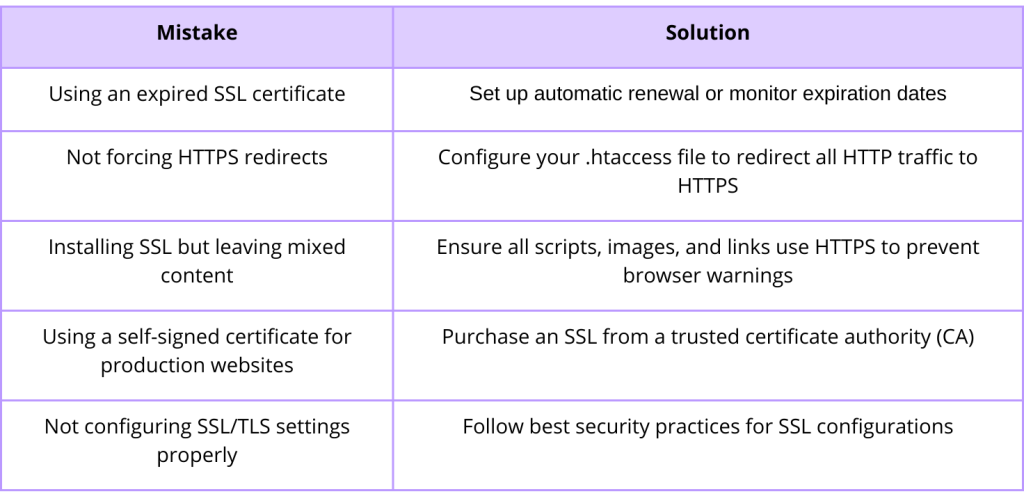
08 Mar Why SSL Certificates Are Essential for Website Security
A secure website is crucial for building trust with users and protecting sensitive data. One of the most important security measures a website can implement is an SSL (Secure Sockets Layer) certificate. SSL certificates encrypt data, safeguard user information, and enhance credibility. Whether you run a small business website or a large e-commerce platform, SSL is no longer optional—it’s a necessity.
This article explores what SSL certificates are, how they work, their benefits, and why they are crucial for website security.
What Is an SSL Certificate?
An SSL certificate is a digital certificate that encrypts communication between a user’s browser and a website’s server. This encryption prevents hackers from intercepting data, such as login credentials, credit card information, and personal details.
Websites with SSL certificates display HTTPS (instead of HTTP) in the URL and show a padlock icon in the browser address bar, signaling that the site is secure and trustworthy.
How Does SSL Work?
SSL follows a three-step process to establish a secure connection:
- Browser and server initiate a connection – When a user visits an SSL-enabled website, their browser requests a secure connection with the server.
- SSL certificate verification – The server sends its SSL certificate to the browser to prove its identity.
- Data encryption begins – Once verified, an encrypted connection is established, and all information exchanged remains secure and private.
Why SSL Certificates Are Essential
1. Encrypts Sensitive Data
Without SSL, data transfers occur in plain text, making it easy for hackers to intercept sensitive information. SSL encryption ensures that all transmitted data remains private and protected from cyber threats.
2. Protects Against Cyber Attacks
Cybercriminals use man-in-the-middle (MITM) attacks to steal unencrypted data. SSL prevents these attacks by securing communication between users and the website.
3. Builds Trust and Credibility
Visitors are more likely to trust a website that displays the HTTPS padlock in their browser. SSL enhances credibility, making users feel confident when submitting personal information or making purchases.
4. Improves SEO Rankings
Search engines like Google prioritize HTTPS websites in search results. A website without SSL may rank lower, impacting visibility and traffic. Google even warns users about insecure websites, which can drive visitors away.
5. Enables Secure Online Transactions
For e-commerce businesses, SSL is mandatory for processing credit card payments and securing customer data. Payment processors like PayPal and Stripe require SSL for compliance with PCI DSS (Payment Card Industry Data Security Standard).
6. Prevents Browser Warnings
Modern browsers display security warnings for websites without SSL, often discouraging users from proceeding. A website without HTTPS may display messages like “Not Secure”, leading to lost traffic and customer trust.
7. Helps Meet Regulatory Requirements
Many industries, such as finance, healthcare, and e-commerce, require SSL to comply with data protection regulations like GDPR, HIPAA, and CCPA. Failing to implement SSL could result in legal consequences and financial penalties.
Types of SSL Certificates
Different SSL certificates are available depending on business needs and security requirements:

Choosing the right SSL certificate depends on your security needs and the level of trust required for your audience.
How to Get an SSL Certificate for Your Website
1. Choose a Reliable SSL Provider
SSL certificates can be purchased from certificate authorities (CAs) like DigiCert, GlobalSign, Let’s Encrypt, and Sectigo.
2. Verify Your Website Ownership
Depending on the type of SSL certificate, you may need to verify domain ownership or business identity.
3. Install the Certificate on Your Server
After approval, install the SSL certificate on your web hosting server. Most hosting providers offer automatic SSL installation.
4. Update Website URLs to HTTPS
Ensure all website links, resources, and third-party integrations use HTTPS instead of HTTP to avoid security warnings.
5. Renew SSL Before Expiration
SSL certificates typically expire annually and must be renewed to maintain website security.
Common SSL Mistakes to Avoid
While implementing SSL is essential, improper setup can lead to security issues. Avoid these common mistakes:

How PT. KDN Can Help with SSL Implementation
At PT KDN, we specialize in website security solutions, including SSL certificate setup and management. Our services ensure that businesses:
- Get the right type of SSL certificate for their needs.
- Have a properly configured HTTPS setup.
- Avoid browser security warnings.
- Maintain ongoing SSL monitoring and renewals.
With PT KDN, businesses can operate securely while focusing on growth and customer engagement.
Conclusion
An SSL certificate is one of the most essential security measures for any website. It encrypts sensitive data, protects against cyber threats, builds trust with users, and improves SEO rankings.
Without SSL, businesses risk losing customers, ranking lower on search engines, and exposing sensitive data to hackers. By implementing SSL and keeping it updated, websites can provide a safe, reliable, and professional experience for users.
For businesses looking for expert assistance in securing their website, PT KDN offers reliable SSL solutions to ensure online safety and compliance. Secure your website today to protect your customers and business reputation.


Sorry, the comment form is closed at this time.